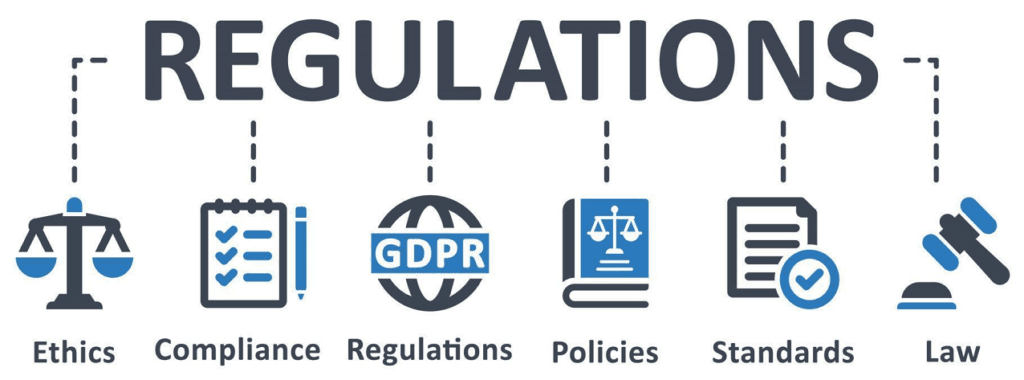Government regulated TESOL certification programmes
First and foremost, AVSE-TESOL (Australia) is a family owned and managed vocational, education and training entity. Our core business is delivering Australian Government accredited TESOL certification programmes. We are a Registered Training Organisation (RTO) in Australia. Our RTO number is: 45373.
The Australian Skills Quality Authority (ASQA) is the regulatory agency for vocational education and training in Australia. Following a comprehensive application and audit process, ASQA authorised AVSE-TESOL to offer an in-class Certificate IV in TESOL (Teaching English to Speakers of Other Languages) training programme (Course code: 11245NAT) offshore, specifically in Hanoi, Ho Chi Minh City and Phnom Penh. AVSE-TESOL also offers the same Certificate IV in TESOL via an online study mode, which can be completed from the comfort of your own home. Information about AVSE’s online government accredited TESOL certification programme can be found here.

On this page, we’ll focus on the in-class TESOL course.
The in-class TESOL course at AVSE in Hanoi, Ho Chi Minh City and Phnom Penh involves an estimated time commitment of 150 hours over 4 weeks including 14 hours (minimum) of practical teaching experience with ‘actual’ English language students engaged in ongoing ESL classes. TESOL students have the option of taking up to 6 months to complete the assessment tasks in the event they’re not looking to start work as an English language teacher in the short to medium term. The accredited TESOL certification programme at AVSE is suitable for professionally-minded people of all ages and backgrounds who are interested in teaching in Vietnam, Cambodia or in other countries. It’s equally suitable for people who wish to teach English in their home country or online.
Our TESOL course has equivalent academic status and content to a CELTA or Trinity Certificate in TESOL. The course has two principal aims: 1. to certify prospective teachers for a rewarding career as an ESL Educator; and 2. to provide both experienced and prospective teachers with theoretical knowledge, skills and hands-on teaching experience.

Graduates of the Australian Government accredited TESOL certification programme at AVSE-TESOL are:
- Fully equipped to deliver interactive, fun learning experiences for students of all ages and skill levels;
- Adept at managing a classroom;
- Proficient in the principles of language use and analysis;
- Knowledgeable about ‘teaching theory’ and its practical application; and
- Skilled in identifying learning difficulties and developing & implementing responsive action plans.
The TESOL course at AVSE-TESOL is certainly challenging, but it’s also rewarding. There’s a lot to learn in four weeks. You’ll be taught the skill sets that will allow you to ‘hit the ground running’ as an English language teacher. We’ll ensure you get all the support you need during the course to make your experience enriching and memorable.

Day one of each in-class TESOL course in Hanoi, Ho Chi Minh City and Phnom Penh is dedicated to becoming familiar with the neighbourhood surrounding the training centre and socialising with the people you will spend close to a month with during the course. There is a Welcome Party (complimentary) in the evening on day one. The study programme – the heavy lifting – commences on day two.
The maximum number of students that AVSE-TESOL can accept for the accredited TESOL certification programme is – 16 in Hanoi, 24 in Ho Chi Minh City and 14 in Phnom Penh. Classes tend to be fully-booked a month or two before the scheduled start date, so it’s best to book early.
TESOL students come to AVSE-TESOL from all corners of the world with around 30% having English as a second (or third) language. Over the past decade, the youngest TESOL trainee at AVSE was 17 (Australian) and our oldest was 78 (American). Typically, the TESOL classes at each of AVSE’s three locations have an even split of males and females.
The theory component of our accredited TESOL certification programme largely takes place in weeks 1, 2 & 3, Monday to Friday 8.30 am to 3.00 pm (+/-). The practical component (observation and teaching practice classes – a minimum of 14 hours) is evenly spread across the 4 weeks and involves some evenings and part of each weekend. In the final week of the study programme, the focus is on providing support with completing the necessary assessment tasks and transitioning to paid employment.
Course content includes learning styles, lesson structure, lesson planning, teaching the language, class management, presenting material, local and international tests, feedback, computer assisted learning, building a portfolio of teaching and learning resources – and a lot more. There is a mix of assessment formats, but you’ll be pleased to know there isn’t a final examination as such. The content and assessment tasks are consistent with what you’d expect from a government accredited TESOL certification programme.

The cornerstone of your assessment will be the 14-hour observation and teaching practicum (see above). You may begin as early as day one by observing actual ESL classes and journaling your reflections as you go. Towards the end of week two we’ll guide and support you as you jump, feet-first, into planning, teaching and evaluating 8 hours of real English classes with real local students.
AVSE-TESOL employs qualified assessors who work under strict, Australian Government compliance standards for vocational training programmes. These standards ensure the quality and independence of the assessment process and your readiness to teach English as a second language straight after you’ve finished the accredited TESOL certification programme.
Interestingly, 34% of people who graduate from the TESOL course at AVSE were initially referred by alumni. While the number of referrals from previous students and substantial growth over the years suggests that AVSE is on the right path, we’re mindful of the link between continuous improvement and future success.
Blog Post: Key documents to teach abroad
PERSPECTIVE
If you’re anything like me, when the word ‘paperwork’ is mentioned, the ‘shutters come down’. Who can be bothered? Paperwork is tedious and reeks of boredom, but getting your documents in order before leaving your home country to join a TESOL course in Vietnam (or elsewhere), is essential. Vietnamese officials love paperwork. They also love red stamps (occasionally blue, depending on the document). If your paperwork (or stamp) doesn’t meet the requirements, there’s a good chance your teaching abroad adventure will fall in a heap before it starts.

There are six crucial documents that you need to sort out before leaving your home country to participate in a TESOL course in Vietnam: 1. your passport; 2. a visa to enter Vietnam; 3. your qualifications (if any); 4. a background check; 5. an English proficiency test (if you’re a non-native English speaker); and 6. medical insurance. Of course, not all the paperwork I’ve mentioned comes with a legal requirement, for example – medical insurance, but it’s best to cover all your bases. I’d suggest that you use a ‘check list’ to tick off the key documents one by one, when they’re finalised.
Passport
Your passport must have at least twelve months remaining before the expiry date – and it must be in ‘shipshape’ condition. If your passport is due to expire within the next twelve months or during the time that you plan to be abroad, you’ll need to renew it before you depart. Torn pages, water damage and suchlike are also good reasons to renew your passport before you head off. If your passport gets damaged while you’re abroad, contact your embassy for advice.

Visa
Some nationalities can enter Vietnam without a visa. It’s best to assume that your nationality is not one of them. Assume you need a visa to enter Vietnam and seek guidance from the Vietnamese Embassy closest to where you live on what’s the best visa for your particular circumstances. Once you have advice from the Vietnamese Embassy about the most appropriate visa, it would be worth running the idea by a few teachers who are on the ground in Vietnam – and the entity that’s delivering your TESOL course in Vietnam. There might be quirky TEFL / TESOL factors that the embassy doesn’t know about.
Qualifications
If you hold a university or college degree – or some other qualification – you need to bring the original document with you. Moreover, documents of this kind must be notarised in your home country as being genuine. While some foreign embassies in Vietnam are prepared to notarise documents, this is not universal. So, it’s best to do it before you leave home. There’s a division of government in every country that takes care of notarising documents for use abroad. It’s simply a matter of finding out who takes care of this process in your country.

Background check
More than 90% of the teaching work in Vietnam involves young learners aged 4 through to 17 years of age. Given the age of the students, it makes sense that employers (schools) want to know about the person they’re about to employ. One way that employers can do this is through a background check from the candidate’s home country. It will be your responsibility to provide a background check. It needs to be no more than six months old. It needs to be an original document that’s notarised in your home country as genuine and correct.
How can you get your hands on a background check before departing your home country for a TESOL course in Vietnam? Good question! Every country has an arm of government that deals with background checks. The best place to start is the Department of Justice (or similar), closest to where you live.
English Proficiency Test
If you’re a non-native English speaker, a potential employer will likely want to see hard evidence of your skill level in English. Rightly or wrongly, employers in Vietnam place trust in a decent IELTS or TOEFL internet-based test (ibt) score. Therefore, non-native English speakers should: 1. complete an IELTS or TOEFL ibt examination in their home country; 2. have the original document that contains the score notarised in their home country, and 3. bring the original document (notarised) to Vietnam.

Medical Insurance
Are you one of those TEFL / TESOL people who think they’re indestructible? If so, I’m sorry to be the bearer of bad news. You’re not. Medical insurance with adequate coverage is crucial when travelling abroad for any purpose, to attend a TESOL course in Vietnam or otherwise. With a simple Google search, you can find travel horror stories about people who became ill or injured while abroad, incurring medical bills that they were unable to pay. Being hospitalised in Vietnam and unable to pay the bill is one way to trash your once in a lifetime teaching abroad adventure. By taking out Medical Insurance before you leave home, you’ll be able to pay your way if something untoward happens.
SUMMARY
In this short blog post, I’ve identified six important documents that you’ll need to get sorted before leaving your home country to attend a TESOL course in Vietnam. You need to make sure the expiry date of your passport is at least twelve months away. Having the right visa coverage is imperative. Your qualifications (if any) should be notarised and legalised in your home country. You’ll need a background check (notarised and legalised in your home country) that’s not more than six months old. If you’re a non-native English speaker do an IELTS or TOEFL ibt test in your home country. Lastly, before heading off for your TESOL course, make sure you have medical insurance with decent coverage!
About the writer: Peter Goudge is the Managing Director (and founder) of AVSE-TESOL in Hanoi, Ho Chi Minh City, Phnom Penh and Online. AVSE-TESOL has been delivering Australian Government accredited TEFL / TESOL programmes in Southeast Asia for more than a decade. Check out the AVSE website: www.avse.edu.vn
